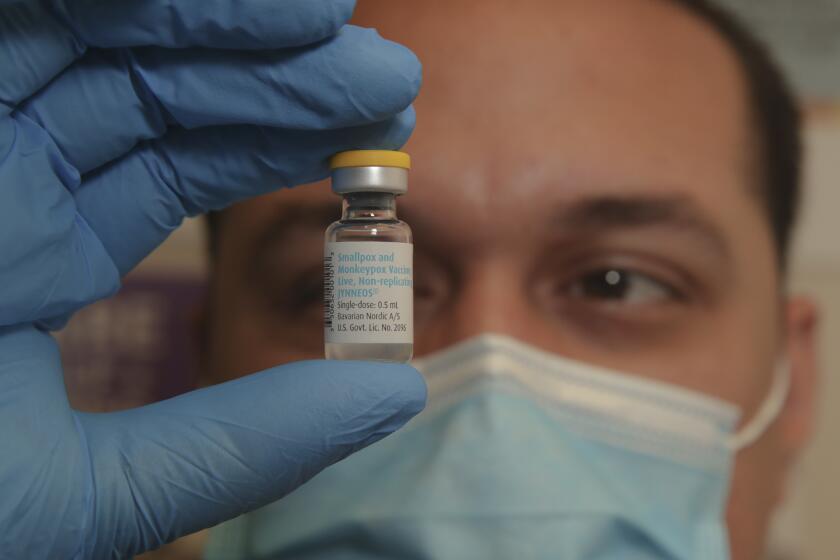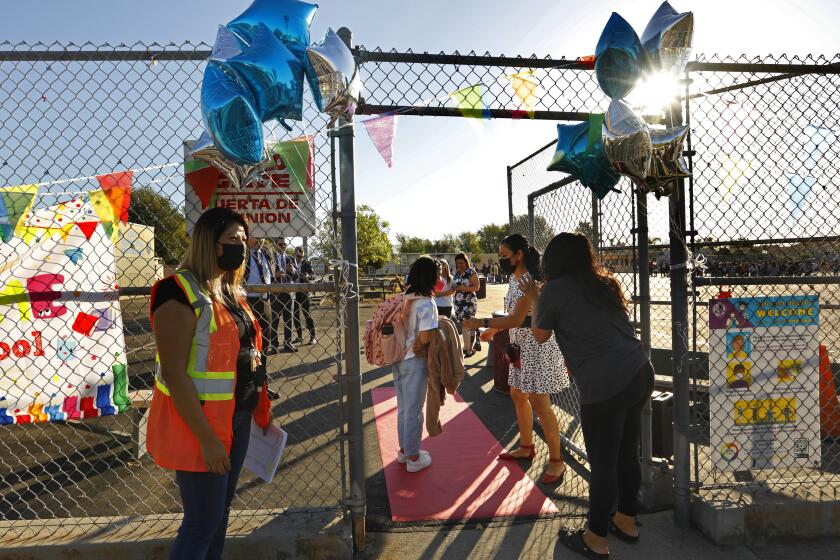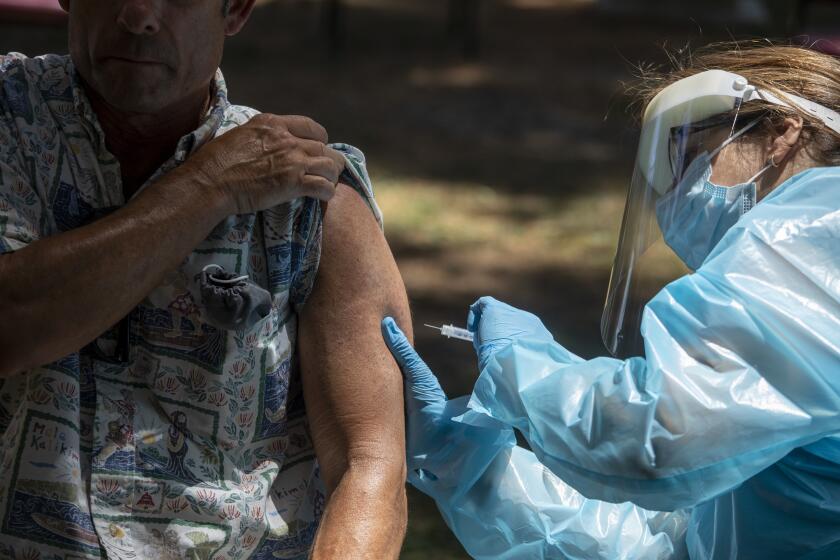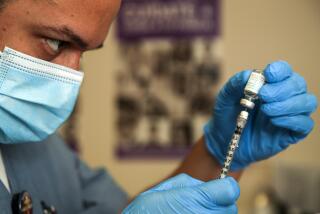A dog got monkeypox in first known case of human-to-animal transmission
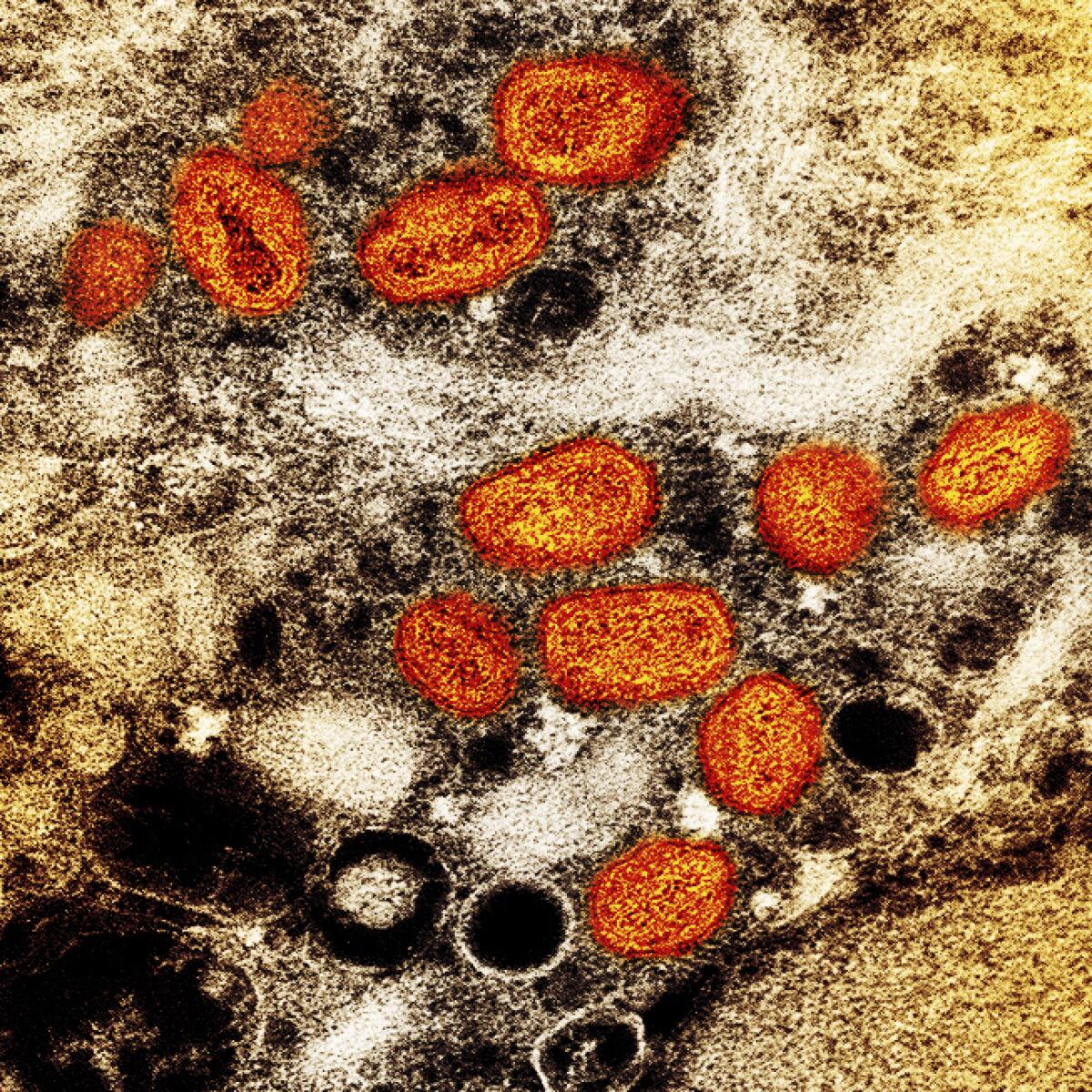
A magnified image of monkeypox particles, in orange, in an infected cell. Scientists in France are seeing a case of human-to-animal transmission from owners to a dog.
- Share via
In what appears to be the first documented instance of monkeypox spreading from humans to animals, a dog was likely infected with the virus by its owners in France, scientists say.
The development, reported in the Lancet medical journal, underscores guidance from the U.S. Centers for Disease Control and Prevention that urges people with suspected or confirmed monkeypox infections to avoid contact with animals — including their pets — while they’re infectious.
The France case occurred in a household where two men live with their male Italian greyhound. The dog slept in the same bed with its owners. The greyhound developed symptoms 12 days after the owners did, according to the report.
The owners “had been careful to prevent their dog from contact with other pets or humans from the onset of their own symptoms,” the report said.
How monkeypox spreads, how to get a vaccine and more: Your frequently asked questions about monkeypox, and answers from experts.
A number of animals are susceptible to monkeypox, including several types of rodents, monkeys, apes, hedgehogs, shrews and dogs, the CDC says. It’s unknown whether that’s true for cats or farm animals, such as cows, goats, sheep and pigs.
“We should assume any mammal can be infected with monkeypox virus,” the agency wrote on a guidance page.
When asked about the canine case this week during a video conversation with the Washington Post, Dr. Rosamund Lewis — technical lead for monkeypox at the World Health Organization — said, “This is the first incident that we’re learning about where there is human-to-animal transmission.
“This has not been reported before, and it has not been reported that dogs have been infected before. So on a number of levels, this is new information,” she said. “It’s not surprising information, and it’s something that we’ve been on the watch out for.”
She added, though, that “we don’t know if that dog can go and transmit the infection to anyone else.”
“This is an example where most pets will not be at risk. It may only be those who are actually in the household of someone who’s infected,” she said.
At least 2 cases of monkeypox are confirmed in L.A. County children, but health officials say the risk for kids remains low, including in school.
More than 2,300 probable or confirmed monkeypox cases have been reported in California as of Wednesday, according to the state Department of Public Health.
If a monkeypox-infected person did not have close contact with a pet after the onset of symptoms, the CDC suggests asking a friend or family member who lives in a different household to care for the animal until the owner fully recovers. Close contact with a pet includes petting the animal or sharing food or a sleeping area.
Owners who must care for their healthy pets during home isolation should, before and after caring for them, wash their hands, and while caring for them, cover any skin rashes and wear gloves and a well-fitting mask. Owners should do their best to avoid close contact with pets.
Monkeypox cases are rising exponentially, dimming hopes that officials can quickly gain control of the virus that has the potential to establish a lasting foothold.
Pet owners also should try to keep their animals from coming into contact with contaminated clothing, sheets and towels. Pus from the sores of an infected person are filled with contagious virus.
Pet waste should not be left outdoors because that could increase the risk of the virus infecting wildlife. It should be flushed down the toilet if possible, and if not, sealed in a bag before being thrown away.
Owners also should avoid shaking soiled laundry or contaminated bedsheets that could disperse contagious materials, according to the CDC.
